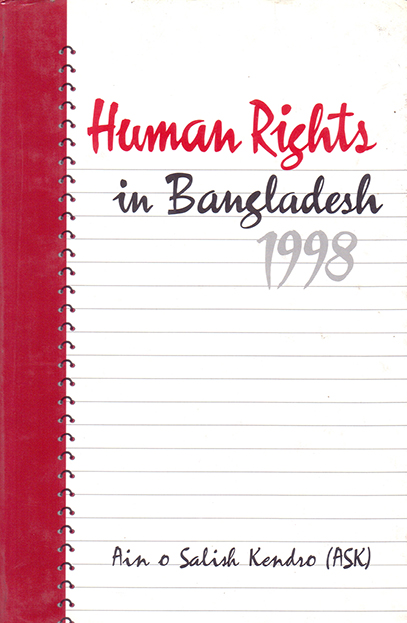
- Shop
- Human Rights in Bangladesh 1998
Human Rights in Bangladesh 1998
https://uplbooks.com/shop/9789840515189-human-rights-in-bangladesh-1998-6474 https://uplbooks.com/web/image/product.template/6474/image_1920?unique=3d813f3
| Language: English |
Tags :
Book Info
In presenting a chronology of the violations of human rights, Human Rights in Bangladesh 1998 suggests the nature of systemic, institutional and cultural weaknesses which allow such transgressions to take place. It is an important source book compiling and analyzing data that reflects upon the situation of human rights in Bangladesh. Ain o Salish Kendra (ASK), a legal aid and human rights organization has been publicizing the situation of human rights in Bangladesh since 1996. The purpose is to encourage self-criticism, and to recognize the steps the country needs to take towards implementing a human rights agenda, through changes in laws and policies, or through the application of laws. Chapter One appraises the framework for a rule of law by recording those legislative and judicial decisions which touch upon human rights and redress public wrongs. The role of law enforcement agencies in maintaining the rule of law has been seriously questioned in Chapter Two, which documents the threats to the right to life, arising from disrespect for civil and political liberties. The impunity of law enforcement personnel has, in particular, raised concerns relating to the rule of law and the right to democratic dissent. Citizens have come under pressure to resist such encroachments upon their rights, they have taken to civil protest, advocacy, and judicial remedies to protect human rights. Chapter Three is concerned with rights to education, livelihood, shelter, health and environmental protection. Security and safety at the workplace is a growing concern. The chapter raises the ethical issue of professional responsibility both in the housing and health sectors. Chapters Four to Seven focus on discriminatory policies or practices that affect separately the rights of women, children, minorities and refugees. This report is based primarily on published sources: court records, government reports, national newspapers, journal articles, studies by different agencies, fact-finding investigations and unpublished reports.



